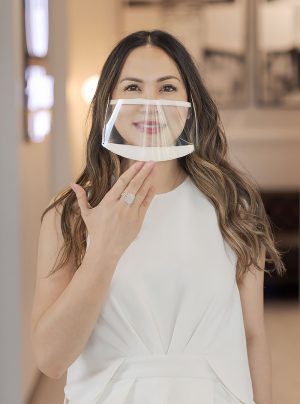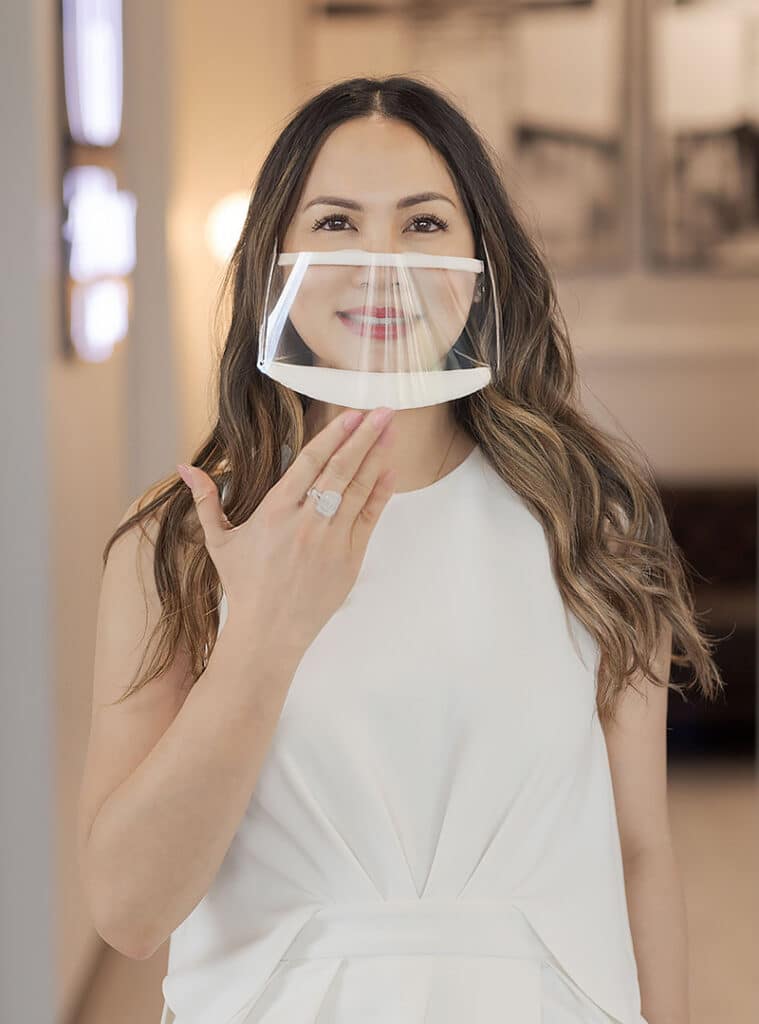July is Disability Pride Month. I recently found out about this while scrolling through Instagram and coming upon a friend’s IG post. She was born with moderate to severe hearing loss but overcame the challenges of her disability and is a very accomplished woman with a company she founded to bring disability awareness to organizations and the community. She is such an inspiration and is always thinking about ways to promote diversity inclusion and build positive personal connections.
During one of our conversations in January 2022, she shared with me how going to the dentist was such a challenge and how she’s had some negative experiences in the past from being hearing impaired and unable to read lips behind conventional masks that made dental appointments even more stressful. She mentioned how having clear masks would be so helpful. This really made an impression on me, and I later followed up asking her if she had a recommendation for where to get these masks. She sent me the link for ClearMask transparent surgical masks, and I filed this info away for future reference.
One billion people, about 15% of the global population, experience some form of disability. Disabilities come in all shapes and forms, some physically obvious, others less obvious or even invisible. I’ve worked in healthcare for over 20 years combined as both a nurse and a dentist and have cared for many patients with disabilities. The medical model of disability views disability as a problem that exists within a person’s body and frames an individual’s impairment as the cause for their inability to participate fully in society.
The social model of disability, however, essentially says that individual limitations are not the cause of disability, rather it’s society’s failure to provide appropriate services and adequately ensure that the needs of disabled people are taken into account in societal organization. Ultimately, this model proposes that a disability is only disabling when it prevents someone from doing what they want or need to do. It places the burden of responsibility on society rather than on the individual.
In a Forbes article titled, “We Have Been Disabled: How The Pandemic Has Proven The Social Model Of Disability,” psychologist Dr. Nancy Doyle outlines what she describes as “the responsibility that society holds for the disablement of others.” She writes, “If everyone was taught sign language at an early age, a deaf person would no longer be disadvantaged. If towns were built and planned with physical disabilities in mind and there was no social stigma attached to looking or sounding different, then having a physical impairment would no longer be disabling.”
Healthcare providers can be leaders in changing how society views and approaches disabilities. If we find ways to remove barriers and improve access to care within our own practices, it normalizes these approaches to care for those with disabilities, so they are no longer perceived as disabled.
When we got closer to opening 2thbar, I purchased the ClearMask transparent surgical masks, and we have them ready in-office for anyone who needs them. It is our hope and desire that attention to details like this, no matter how small, will help to create a positive experience for everyone and to improve access to care and support equal rights for those with disabilities.

